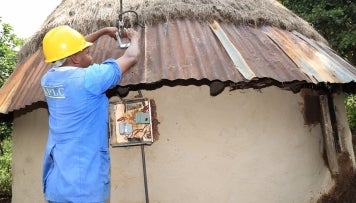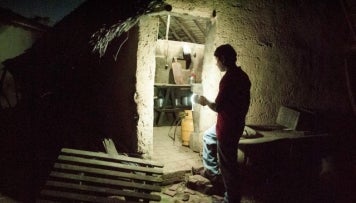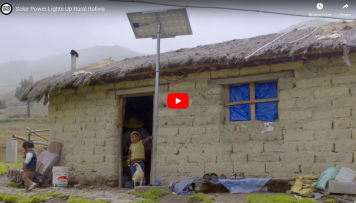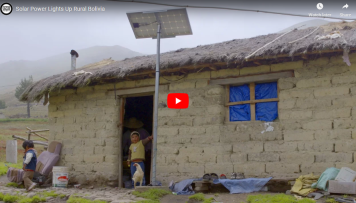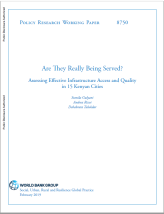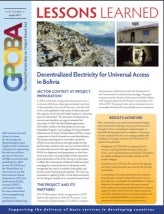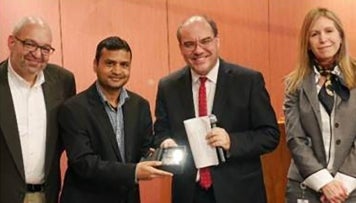
There is a lot of innovation from the World Bank Group in output-based aid, and the Global Partnership on Output-Based Aid (GPOBA) recently recognized six World Bank Group projects for outstanding innovation, collaboration and inclusion using output-based aid (OBA) or other forms of results-based financing (RBF).
“We are pushing the edge of the envelope and, as a result, we are seeing a tremendous amount of innovation using OBA and other RBF mechanisms,” said Ede Ijjasz-Vasquez, Senior Director for the Social, Urban, Rural and Resilience Global Practice, who presented GPOBA’s second annual “Inn-OBA-tions” awards on December 3, 2014. “The nominations and awards come from all corners of the World Bank Group, demonstrating how OBA/RBF connects our global practice to other global practices, sectors and partners.”
Carmen Nonay, GPOBA’s manager, noted that GPOBA currently works in six of the global practices, and two of the cross-cutting solutions areas. GPOBA also has extensive experience working with the IFC, with 20 joint projects.
For every dollar GPOBA put into a project, it has leveraged 2.3 dollars in total from governments, the private sector or beneficiaries. That leverage is figured in the truest sense; if GPOBA had not been involved in the project the additional financing would have disappeared.
The “Inn-OBA-tions” awards were divided into three categories; the Collaboration Award, exemplifying collaboration in OBA/RBF projects; the Inclusion Award, honoring OBA/RBF projects targeting indigenous people, women or other traditionally excluded groups; and the Pioneer Award, for OBA/RBF projects, innovations, or designs implemented in challenging environments and sectors where there is little or no OBA/RBF experience.
Collaboration Award
Kenya Electricity, led by Mitsunori Motohashi, worked to establish electricity connections in Kenya’s poorest information settlements – where communities and connections are often controlled by gangs and cartels – the team pulled in colleagues from the urban, water and transport to lend expertise and share knowledge. As a result of the collaboration, the number of electricity connections went from 3,500 over a two-year period to 12,000 in the next five months.
Inclusion Award
Bolivia Decentralized Energy for Universal Access, led by Lucia Spinelli, used output-based subsidies for rural households, micro enterprises, schools and clinics, carefully targeting 60,000 primarily indigenous people living in the some of the poorest parts of the country. The project involved interaction with local communities and organizations and developed a sense of ownership among the beneficiaries, and served as a transition between its IDA predecessor and the follow-up operation.
Pioneer Award
The Zimbabwe Health Sector project team, led by Ronald Mutasa, for its pioneering use of RBF mechanisms to address health care supply-and-demand issues in a challenging environment. The project combines pay-for-performance, vouchers and a pay-for-quality scheme, and has strengthened the Zimbabwe health system’s response to maternal, neonatal and child health needs.
Runner up: Indonesia Clean Stove Initiative, led by Yabei Zhang, which was the first to introduce and operationalize the RBF approach for clean cook stoves in Indonesia.
Runner up: Results-Based Financing for Municipal Solid Waste, led by Marcus Lee and Farouk Banna. RBF is new to solid waste sector, and this report was the first document a framework for future RBF work in solid waste.
Runner up: Oaxaca Water Supply and Sanitation Sector Modernization Operation, led by Charles Delfieux, which introduced an innovative RBF approach in the water sector, marking the first time PforR instruments have been used in Mexico and PforR operations have supported water and sanitation services sector institutional reform and improvements in urban water services.
